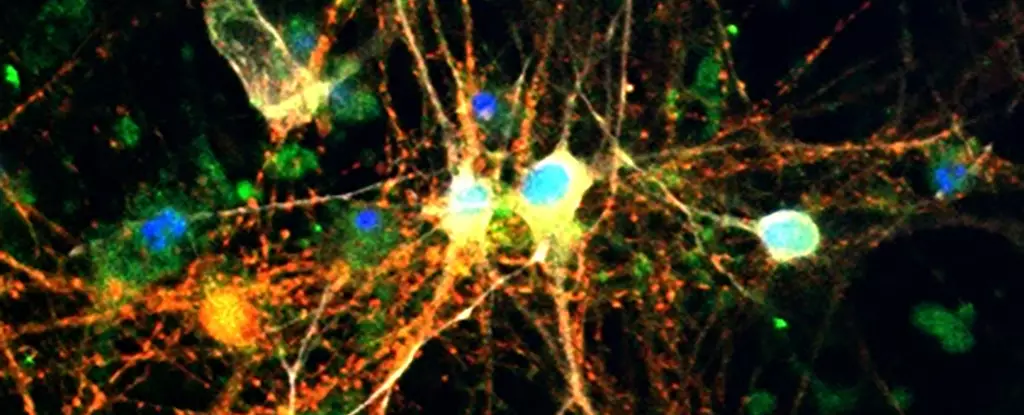For decades, the scientific consensus has relegated glycogen—the stored form of glucose—to a peripheral role in brain function, primarily serving as an energy buffer in the liver and muscles. This narrow view has limited our appreciation of how metabolic processes influence neuronal health and disease. However, emerging evidence now demands a reevaluation: glycogen in the brain is not a passive reserve but an active participant in neurodegeneration. This revelation holds the potential to radically change how we approach conditions like Alzheimer’s disease, transcending traditional treatments focused solely on amyloid plaques and tau proteins.
The implications are profound. If glycogen metabolism directly influences neurodegenerative pathways, then modulation of this process could unlock new therapeutic avenues. This stands in stark contrast to the prevailing narrative that largely ignores the metabolic intricacies within neurons. Instead, it suggests that a failure in glucose handling—more specifically, aberrant glycogen accumulation—could be a core driver or at least a significant contributor to neuronal decline.
Interplay Between Glycogen and Tau: A Hidden Catalyst
The study conducted by researchers at the Buck Institute reveals a complex relationship: excessive glycogen storage correlates with tau pathology, a hallmark of Alzheimer’s. Tau proteins, notorious for forming neurotoxic tangles, appear intertwined with the brain’s glycogen reserves. Crucially, tau disrupts the normal breakdown of glycogen, causing an abnormal buildup that exacerbates neuronal stress and damage.
What does this mean? It suggests a vicious cycle where tau and glycogen accumulations reinforce each other, accelerating neurodegeneration. This counters the traditional focus solely on proteins, hinting that metabolic dysfunction might be an underestimated root cause. The discovery that tau impairs glycogen metabolism signals that metabolic health is inseparable from neuronal resilience. It reveals a potential vulnerability: by correcting glycogen mobilization deficits, we could indirectly influence tau pathology.
The role of glycogen phosphorylase (GlyP) is pivotal here. When the researchers increased GlyP activity in fruit fly models, glycogen stores were effectively depleted, resulting in reduced oxidative stress and increased lifespan. This finding emphasizes the therapeutic potential of targeting enzymatic activity—mobilizing stored glycogen appears to bolster neuronal defenses against damage.
Diet, Drugs, and the Promise of Metabolic Interventions
Crucially, the study links dietary restriction—already associated with cognitive benefits—to glycogen utilization. Flies on low-protein diets showed reduced brain damage and lived longer, suggesting that metabolic shifts induced by caloric restriction are beneficial. This aligns with broader research advocating for lifestyle interventions in neurodegenerative conditions, but it elevates the discussion to a new level: manipulating brain glycogen metabolism could be a standalone or adjunct strategy.
The researchers also introduced a pharmacological approach: developing a drug based on 8-Br-cAMP to mimic dietary restriction effects. The success in animal models hints at feasible human applications. Interestingly, their work hints at intersections with existing diabetes medications like GLP-1 receptor agonists, such as Ozempic, which are now being investigated for their neuroprotective properties. These drugs, by influencing insulin pathways and glycogen metabolism, could turn out to be indirect yet powerful tools against neurodegeneration.
This convergence of diet, drugs, and molecular biology underscores an emerging paradigm—treatments should encompass metabolic health and cellular chemistry, not just symptomatic relief. In essence, understanding and manipulating how neurons handle sugars may be the key to halting or reversing the decline seen in Alzheimer’s and related tauopathies.
A New Hope Rooted in Metabolic Reprogramming
This research signifies a bold leap in our understanding of neurodegenerative diseases. If glycogen accumulation and its dysregulation are central players in the development of Alzheimer’s, then traditional approaches—focused solely on clearing tangles—may be fundamentally incomplete. Instead, addressing the metabolic underpinnings offers a comprehensive strategy that tackles the disease at its core.
Such insights challenge the neurology community to shift gears, embracing a model where metabolic flexibility and cellular energy management are prioritized. It shifts the narrative from a chronic, inevitably progressive disease to a potentially modifiable state, where restoring healthy glucose and glycogen pathways could preserve neuronal integrity. The prospect of developing treatments that reconfigure brain metabolism is not just innovative but transformative, promising hope for millions affected by these devastating conditions.



Leave a Reply